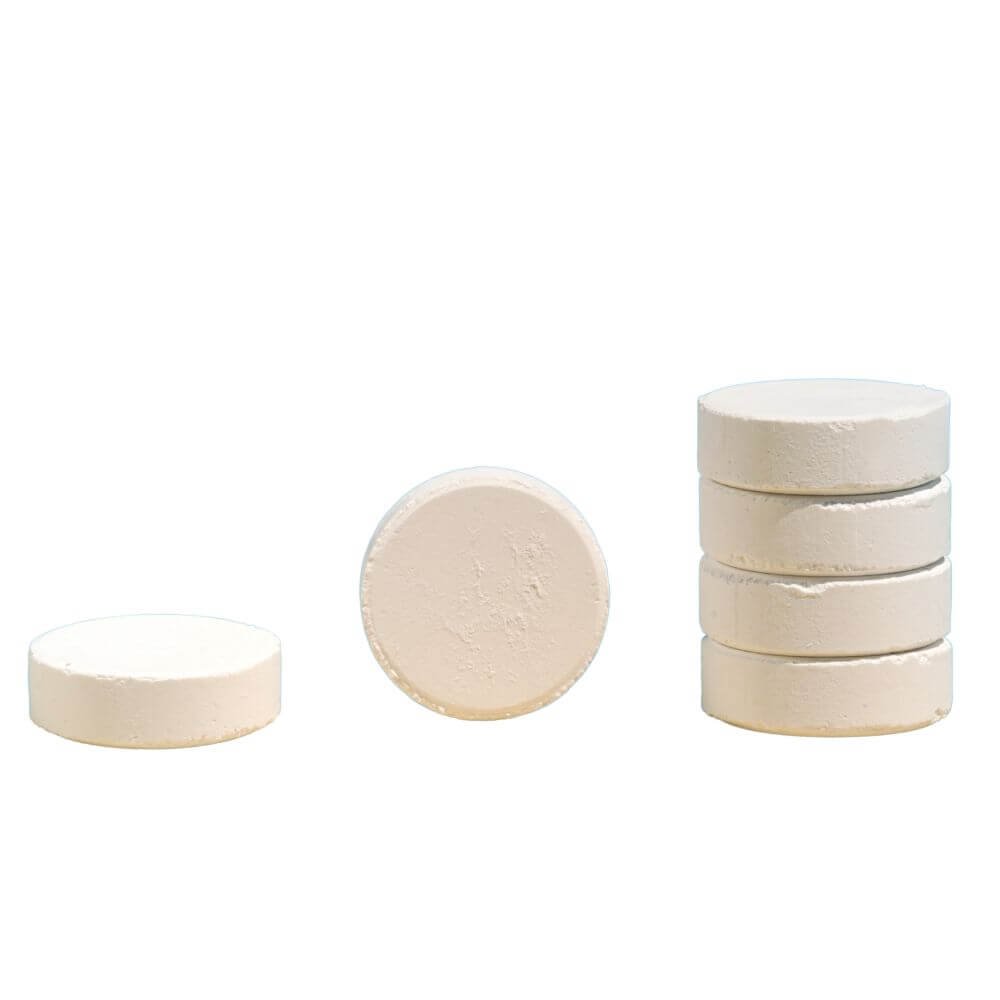In the treatment of sewage, people have been seeking effective and efficient ways of treatment. Chlorine tablets have become a driving force in this process and are a central contributor to the effectiveness of sewage treatment. This article will explore the importance of chlorine tablets in sewage treatment and their advantages.
Wastewater Treatment Fundamentals
Wastewater treatment is a process where several steps are taken to screen out contaminants from water before releasing it back into the environment or recycling. The initial step would usually be a physical process of filtration to strain out large wastes, followed by biological treatment to break down organic matter. These processes may not necessarily kill off harmful microorganisms completely, and that is where chlorine tablets come in handy.
How Chlorine Tablets Work to Treat Wastewater
Trichloroisocyanuric acid (TCCA) chlorine tablets are an extremely effective disinfectant type. These get dissolved in sewer wastewater and break down release chlorine, a good disinfectant. Chlorine breaks and kills the cellular form of lethal bacteria, virus, and disease organism in wastewater. Besides reducing water-borne sickness potential, these help in meeting the strict environmental standards for wastewater discharge.
The slow release of some chlorinating tablets is an extremely useful feature. It allows for a steady flow of chlorine into the wastewater and an even disinfection over some period of time. This is valuable because treatment plants will have an ongoing flow of wastewater and a steady disinfection process is necessary to effectively treat all of the wastewater.

Advantages of Chlorination Tablets in Wastewater Treatment
One of the greatest strengths of chlorination tablets is that they have very potent disinfectant abilities. Chlorination tablets have the capacity to effectively and speedily destroy an array of microbes, even ones resistant to other types of treatments. Because of this, chlorination tablets represent an important tool for achieving wastewater treatment safety.
Chlorinating tablets also have a long-lasting effect. The stable chlorine component in chlorinating tablets ensures a prolonged release of chlorine, and the number of additions of chlorinating tablets is thereby reduced. Besides reducing the manpower and costs in the treatment process, this gives a more stable impact in the treatment.
Besides this, these tablets for chlorination are also multi-purpose in use and can be used in any sewage treatment system.
The ease of use of chlorine tablets is a valuable advantage in decentralized small treatment systems, such as the treatment systems for individual rural homes or small communities. These may lack the sophisticated infrastructure of big treatment plants, and chlorine tablets provide the convenient, quick disinfectant solution. Its easy-to-control dosage and long duration of action allow it to be added directly to treated water, whereby harmful pathogens are killed without the need for advanced equipment.
On the other hand,in large-scale municipal and industrial treatment plants, chlorine tablets can be incorporated into existing automated treatment systems with ease. The properties of continuous water flow in large-scale treatment are complemented by the slow-release properties of disinfectant tablets. This allows a steady rate of disinfection to be maintained throughout treatment, thereby ensuring effective treatment of large volumes of wastewater prior to discharge. Additionally, the adaptability of chlorine tablets to be customized to specific requirements of diverse industrial wastewaters, like varying levels of contaminants or special chemical constitutions, but further increases their effectiveness in such complex scenarios.
The role of Effective Quality Chlorine Tablets
The effectiveness of the treatment of sewage relies on the quality of the chlorine tablets. Some companies produce good-quality chlorine tablets using good-quality raw materials and adopt a rigorous process of quality control. Such chlorine tablets have higher and more stable chlorine with better disinfecting effects.
For example, there are some chlorine tablets suppliers who have various chlorine products, including specialized chlorinating tablets. Their tablets are carefully formulated to meet the specific needs of different wastewater treatment scenarios. They even have tailor-made services, which allow wastewater treatment plants to customize product size, pack and even formulae according to their needs. This flexibility allows every wastewater treatment plant to receive the most suitable solution, thereby allowing customers to achieve optimum wastewater treatment efficiency.
Conclusion
In summary, chlorine tablets have an important impact on the efficiency of wastewater treatment. Their disinfecting ability, extended action period, flexibility, and easy availability of quality products make them an essential item in your wastewater treatment kit. Proper selection of chlorine tablets and their use in an eco-friendly way can help wastewater treatment plants provide better treatment output and contribute to a cleaner, healthier environment.
QC is a China manufacturer of chlorine tablets in different sizes to suit your requirements, whether for use at home or business. Looking ahead to future customer enquiries, we will answer within 12 hours.


 Instant
Quote
Instant
Quote Email
Us
Email
Us